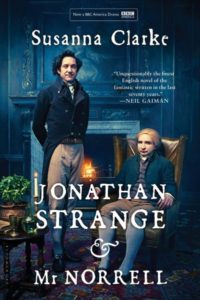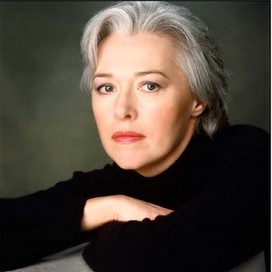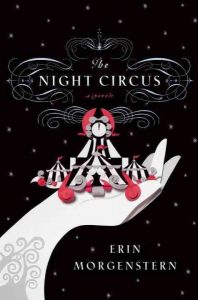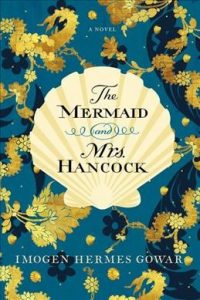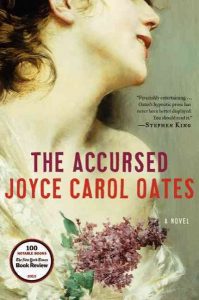April Online Book Club: What is it?
Love the idea of a book club, but you don’t have time to attend meetings? No problem!
We won’t have meetings, but anyone who reads or listens to that month’s title, either with physical copies or digital copies, can participate in our online discussion boards on Facebook and our blog posts.
If you’re busy, but love to read, this could be the perfect Book Club for you! Join us and keep the conversation going!
The April Online Book Club title is Jonathan Strange & Mr Norrell by Susanna Clarke.
About Jonathan Strange & Mr Norrell
From the publisher . . .
The year is 1806. centuries have passed since practical magicians faded into the nation’s past. But scholars of this glorious history discover that one remains: the reclusive Mr Norrell, whose displays of magic send a thrill through the country. Proceeding to London, he raises a beautiful woman from the dead and summons an army of ghostly ships to terrify the French. Yet the cautious, fussy Norrell is challenged by the emergence of another magician: the brilliant novice Jonathan Strange. Young, handsome and daring, Strange is the very antithesis of Norrell. So begins a dangerous battle between these two great men which overwhelms that between England and France. And their own obsessions and secret dabblings with the dark arts are going to cause more trouble than they can imagine.
About Susanna Clarke
From the publisher . . .
Susanna Clarke was born in Nottingham in 1959, the eldest daughter of a Methodist minister. She was educated at St Hilda’s College, Oxford, and has worked in various areas of publishing. In 1990 she left London to teach English in Turin and Bilbao for two years, returning to England to work at Simon and Schuster as a cookery editor.
In 1992, she began working on Jonathan Strange and Mr Norrell which was finally published in 2004 by Bloomsbury to widespread critical acclaim and commercial success. Jonathan Strange and Mr Norrell was filmed as a major BBC drama that aired in 2015. She followed with a collection of short stories, The Ladies of Grace Adieu (2006). Her short story Mr Simonelli, or The Fairy Widower was short-listed for a World Fantasy Award in 2001. Susanna lives in Cambridge with her partner, the novelist and reviewer Colin Greenland.
Consider taking a moment to read this interview with Susanna Clarke from BBC . . .
The library owns several of Ms. Clarke’s other books if you’d like to check them out as well.
Readalikes for Jonathan Strange & Mr Norrell
Discussion questions for Jonathan Strange & Mr Norrell
From the publisher’s Reading Guide (download for additional questions and commentary)…
1. Sir Walter Pole likens England in the novel to ‘an orphaned young lady left in the care of a pack of lecherous, avaricious old men’ who ‘stole her inheritance and plundered her house’. What is the narrator’s view of the government ministers, aristocrats and military figures who hold the reigns of power in Regency England? Do you think satire plays an important part in the novel?
2. Jonathan Strange & Mr Norrell interweaves fictional characters with real figures from nineteenth-century England including, among others, King George III, the publisher John Murray, the Duke of Wellington and the poet Byron. What is the effect of mixing fact and fiction in this way?
3. ‘Magicians have no business marrying’ says Mr Norrell, of Strange’s relationship with Arabella. Why does Norrell take such a dim view of Strange’s marriage to Arabella? What does the novel have to say about marriage in general and the nature of relationships between men and women in the society it depicts?
4. How does Susanna Clarke’s use of the language and idiom of the nineteenth century add to the atmosphere of the book? Does the tone of her narrator or her choice of words remind you of any other writers?
5. An interview with Susanna Clarke in Time magazine suggested that, if it had not already been taken, ‘Sense and Sensibility’ would have been a good alternative title for Jonathan Strange and Mr Norrell. How do Strange and Norrell differ in their motivations for reviving English magic, and in their temperaments? Arabella Strange observes that ‘a great disparity of views and temper existed between the two magicians’. Do they have any similarities? Why do you think the author created two contrasting central characters?
6. What part does madness play in the novel?
Conclusion
Remember to tell us what you think! Comment on this post or on Facebook and let us know your thoughts about Jonathan Strange & Mr Norrell.


